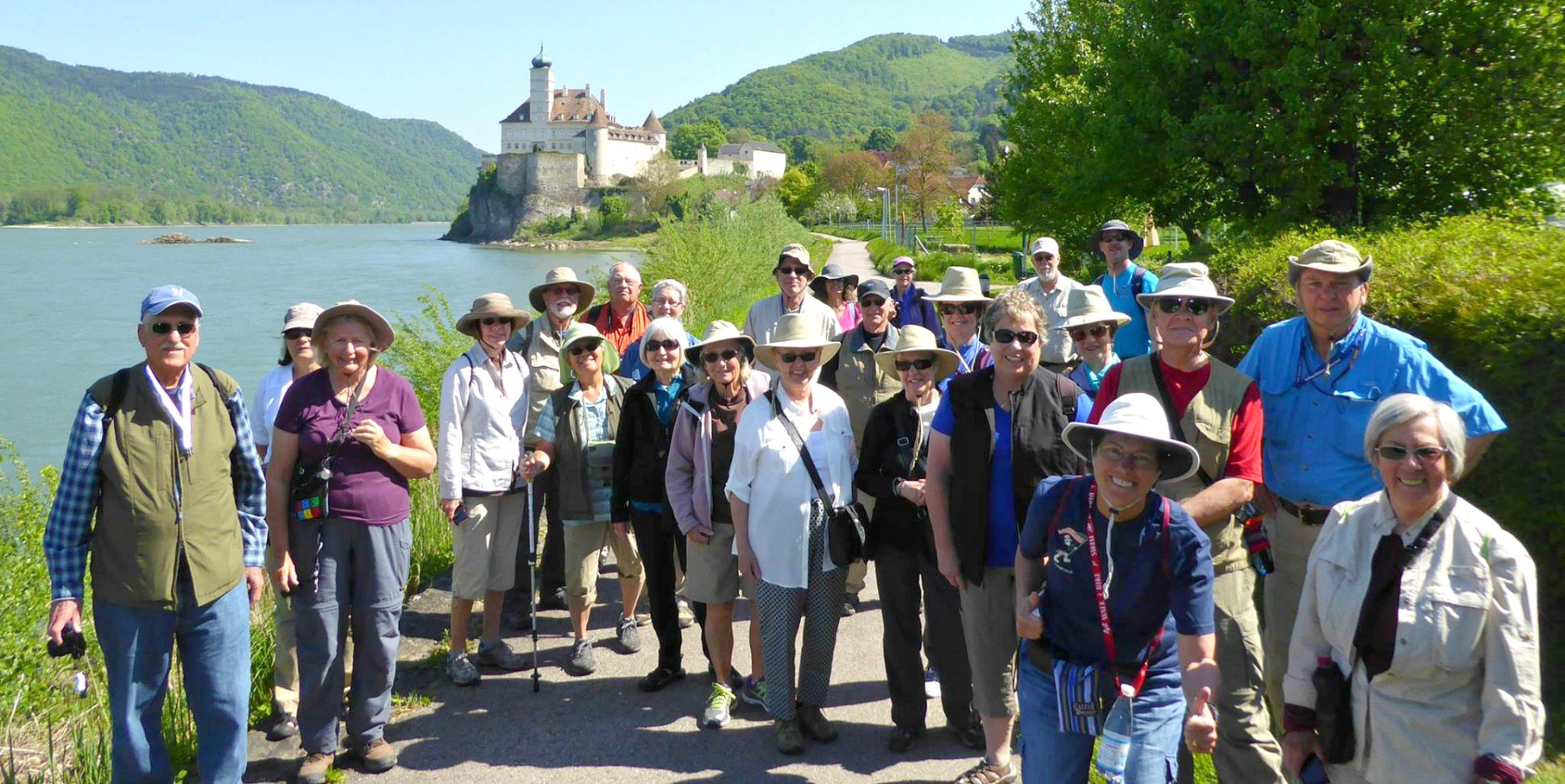Senior travel companies are experiencing a surge in demand, driven by an aging global population with a desire for enriching travel experiences. This burgeoning market caters to a diverse clientele with varying needs and preferences, from adventurous expeditions to relaxing cruises and culturally immersive tours. Understanding the nuances of this demographic is crucial for companies aiming to succeed in this competitive landscape.
This exploration delves into the intricacies of the senior travel market, examining the diverse types of companies, their service offerings, effective marketing strategies, and the challenges and opportunities they face. We will analyze the factors influencing senior travelers’ choices, highlighting the importance of accessibility, personalized experiences, and responsible tourism practices. The future of senior travel is ripe with innovation, and this analysis will shed light on emerging trends and technological advancements shaping the industry.
Challenges and Opportunities in the Senior Travel Industry
The senior travel market, while experiencing significant growth, faces a complex interplay of challenges and opportunities. Companies catering to this demographic must navigate evolving consumer preferences, technological advancements, and the increasing importance of sustainability to maintain competitiveness and drive innovation. This sector’s future hinges on adaptability and a proactive approach to meeting the unique needs and desires of older travelers.
Competitive Landscape and Demographic Shifts
The senior travel market is increasingly competitive, with both established players and new entrants vying for market share. This competition is further intensified by shifting demographics. The aging global population presents a vast potential customer base, but understanding the nuanced needs and preferences of different age cohorts within this demographic is crucial. For instance, the “young-old” (65-74) may have different travel styles and priorities compared to the “oldest-old” (85+).
Companies must tailor their offerings to these distinct segments, offering personalized experiences that cater to varying levels of mobility, health, and interests. Failure to adapt to these evolving demographics could result in missed opportunities and market share loss.
Technological Advancements and the Senior Travel Experience, Senior travel companies
Technology plays a pivotal role in shaping the senior travel experience. User-friendly booking platforms, accessible mobile applications, and virtual reality tours are transforming how seniors plan and experience their trips. However, the digital divide remains a significant hurdle. Companies must ensure their technology is accessible and inclusive, offering support and training for seniors who may be less tech-savvy.
Furthermore, integrating technology to enhance safety and security features, such as GPS tracking devices and emergency assistance services, is becoming increasingly important. This focus on accessible and secure technology directly addresses the specific needs and concerns of older travelers.
Sustainability and Responsible Tourism in Senior Travel
The growing awareness of environmental and social responsibility is influencing the choices of senior travelers. Many are actively seeking eco-friendly travel options and supporting businesses committed to sustainable practices. Senior travel companies can capitalize on this trend by offering tours and packages that prioritize environmental protection, support local communities, and minimize their carbon footprint. Examples include partnering with eco-lodges, promoting responsible wildlife viewing, and supporting local artisans and businesses.
This commitment to responsible tourism enhances the overall travel experience and appeals to a growing segment of environmentally conscious seniors.
Future Trends in Senior Travel
The senior travel industry is poised for significant evolution. Several key trends are likely to shape its future:
- Increased Demand for Multigenerational Travel: Trips involving multiple generations, including grandparents, parents, and grandchildren, are gaining popularity.
- Growth in Wellness and Health-Focused Travel: Seniors are increasingly seeking travel experiences that promote health and well-being, such as yoga retreats, spa vacations, and active adventure tours designed for older adults.
- Rise of Niche Travel Experiences: Specialized tours catering to specific interests, such as history, culture, art, or specific hobbies, will become more prevalent.
- Emphasis on Accessibility and Inclusivity: Travel providers will increasingly focus on designing accessible itineraries and accommodations to cater to seniors with varying levels of mobility and health needs.
- Personalized and Customized Travel Itineraries: Tailor-made travel experiences catering to individual preferences and needs will gain traction, allowing seniors to create truly unique and memorable trips.
Future Trends in Senior Travel: Senior Travel Companies

The senior travel market is experiencing a dynamic shift, driven by evolving preferences, technological advancements, and a growing emphasis on health and wellness. This is creating exciting opportunities for travel companies to cater to the unique needs and desires of this increasingly active and discerning demographic. Understanding these emerging trends is crucial for businesses seeking to thrive in this competitive sector.
Emerging Trends in Senior Travel Preferences and Technologies
Senior travelers are increasingly seeking experiences that are both enriching and comfortable. This translates into a demand for trips that offer a balance of structured activities and free time, accommodations that prioritize accessibility and safety, and destinations that cater to diverse interests and physical abilities. Technological advancements are playing a significant role in shaping these preferences. For instance, the rise of accessible travel apps and websites simplifies trip planning, while virtual reality tours allow potential travelers to experience destinations before committing to a booking.
Furthermore, wearable technology, such as health trackers and GPS devices, offers peace of mind for both travelers and their families.
The Impact of Health and Wellness on Senior Travel Choices
Health and wellness are paramount considerations for many senior travelers. Trips are often chosen based on factors such as accessibility, proximity to medical facilities, and opportunities for physical activity and relaxation. The popularity of wellness tourism, which integrates health-focused activities like yoga retreats or spa treatments into travel itineraries, is on the rise. Destinations offering healthy cuisine, walking trails, and opportunities for mindful relaxation are becoming increasingly sought after.
This trend reflects a broader societal shift towards prioritizing well-being, and senior travelers are actively embracing this change in their travel choices. For example, the increasing popularity of cruise lines offering wellness programs, such as yoga classes and healthy dining options, showcases this trend.
Technology Shaping the Future of Senior Travel Planning and Experiences
Technology is revolutionizing the senior travel experience, from planning to execution. AI-powered travel planning tools can personalize itineraries based on individual preferences, health conditions, and mobility needs. Smart devices and wearables provide real-time assistance, translation services, and emergency contact options. Virtual reality and augmented reality technologies offer immersive previews of destinations and accommodations, reducing anxiety and enhancing the overall planning process.
Furthermore, telemedicine capabilities integrated into travel packages are addressing concerns about access to healthcare while traveling. Companies like SilverSneakers are already integrating technology to provide a seamless travel experience, including accessible transportation and activity options.
Innovative Solutions Addressing Specific Needs of Senior Travelers
Several innovative solutions are emerging to cater specifically to the needs of senior travelers. These include specialized travel insurance policies that cover pre-existing conditions, accessible transportation options like wheelchair-accessible vans and adapted tour buses, and accommodations designed with mobility and safety in mind. Companies are also developing assistive technologies, such as smart canes and GPS trackers, to enhance independence and safety during travel.
Furthermore, the rise of “slow travel” options, emphasizing relaxation and cultural immersion rather than fast-paced sightseeing, caters to the preferences of many senior travelers who value comfort and personalized experiences over rushed itineraries. Examples include escorted tours with smaller group sizes and customized itineraries that allow for flexibility and rest.
Personalized and Customized Senior Travel Experiences
The future of senior travel is undeniably personalized. Travel companies are increasingly offering customized itineraries tailored to individual preferences, interests, and physical capabilities. This could include bespoke tours focusing on specific hobbies, such as birdwatching or photography, or itineraries designed to accommodate specific dietary needs or mobility limitations. For instance, a personalized trip might involve a private guided tour of a historical site, followed by a relaxing afternoon at a spa, concluding with a quiet dinner at a restaurant specializing in regional cuisine.
This contrasts sharply with generic package tours that lack flexibility and cater to a broad audience. The potential for such customized experiences is vast, allowing senior travelers to create unforgettable journeys aligned with their unique needs and desires. This approach focuses on creating a seamless, enjoyable experience that caters to the individual, rather than forcing the individual to fit a pre-defined mold.
The senior travel market presents a dynamic and evolving landscape, demanding adaptability and innovation from companies seeking to cater to its unique needs. By understanding the preferences of this demographic, employing effective marketing strategies, and embracing technological advancements, senior travel companies can unlock significant growth opportunities while promoting responsible and enriching travel experiences for older adults. The focus on personalized service, accessible travel options, and culturally relevant experiences will continue to be key differentiators in this competitive yet rewarding sector.
You also can understand valuable knowledge by exploring military travel agency.


